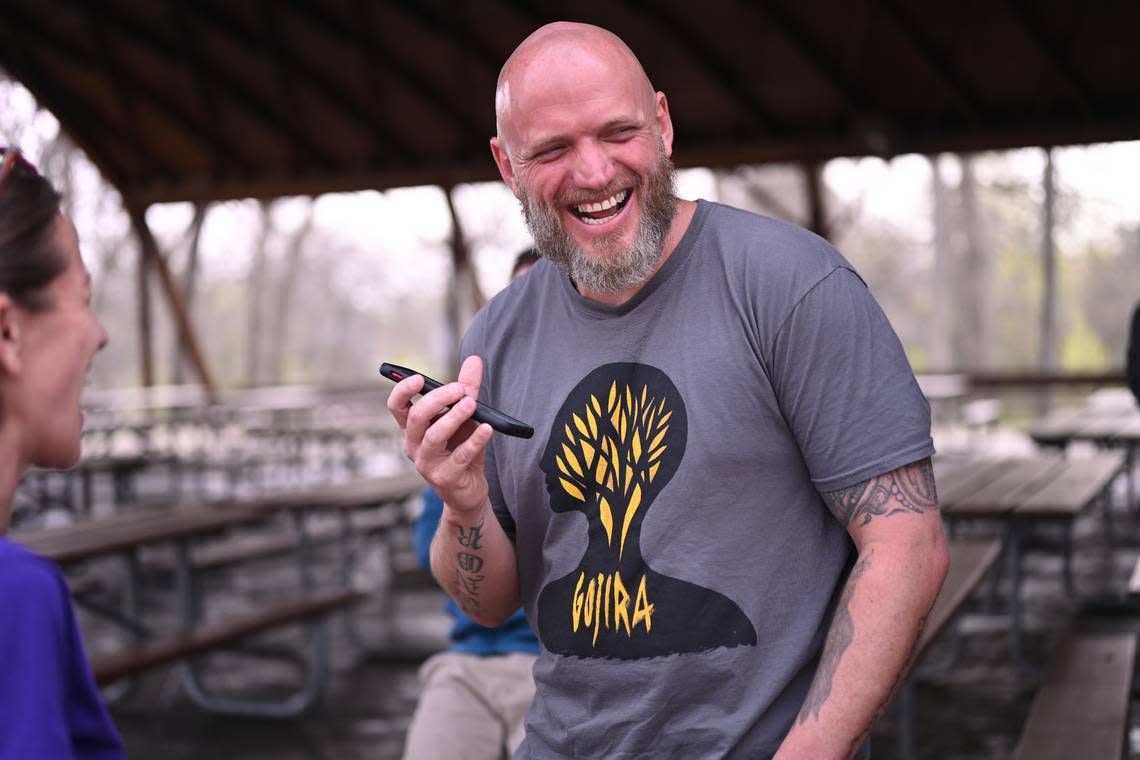MO Supreme Court case could affect rural prosecutors’ ability to overturn convictions
The Missouri Supreme Court heard arguments Tuesday over the role of a local prosecutor seeking to overturn a conviction under a fairly new state law, which could affect future cases in rural counties.
The arguments came in the case of Michael Politte, who for more than two decades has maintained he was wrongly convicted in the 1998 murder of his mother, Rita.
Politte, who was 14 when he was arrested, was paroled last year after spending 23 years in prison.
Weeks after Politte’s release, then-Washington County Prosecuting Attorney Joshua Hedgecorth filed a motion seeking to throw out Politte’s conviction. The only physical evidence that connected Politte to the crime, he said, had been scientifically proven false.
The Missouri Attorney General’s Office contends Politte got a fair trial and is guilty. Taking the case to the state’s highest court, the AG’s office argued Hedgecorth’s motion should be dismissed because he lacked authority to file it. While Politte was tried by Washington County prosecutors, the trial itself was moved to and held in nearby St. Francois County, in southeast Missouri.
Hedgecorth, a Democrat, lost his reelection bid in November to lawyer John Jones, a Republican. On Tuesday, Jones argued that the prosecutor in the jurisdiction where the underlying crime occurred is the right official to bring such a motion for many reasons, including their “specific ethical duty to go back and correct injustices that were done through their office’s actions.”
The hearing exemplified an ongoing power struggle between local prosecutors seeking to overturn convictions under the 2021 law and the AG’s office, which for decades has tried to uphold verdicts — even, critics say, in the face of overwhelming new evidence.
If the AG’s office prevails, the law will “all but cease to function in rural counties” because changes in venue for trials are more common in those regions than they are in metropolitan areas, Jones’ office argued.
“I don’t think the General Assembly intended to treat rural defendants who may have been unjustly convicted in a different way than defendants in bigger cities, where there may not have been as good of a basis to get a transfer of venue,” Jones said Tuesday.

The new law gave Jackson County prosecutors the avenue to free Kevin Strickland, who spent 42 years in prison for a triple murder he did not commit in Kansas City. Across the state, St. Louis prosecutors hope a similar motion they filed will soon free Lamar Johnson, who they say has spent 28 years in prison for a murder that two other men admit committing.
In Politte’s case, Hedgecorth’s motion did not argue that he is actually innocent, but that he was erroneously convicted.
Politte’s lawyers say he became the main suspect after he found his mother’s body burning on the floor of their Hopewell mobile home. At trial, prosecutors relied on expert testimony claiming gasoline was found on Politte’s shoes. But re-evaluations since then have concluded no ignitable liquids were present, and that the chemical compound likely came from the shoe manufacturing process.
Politte’s sisters believe he is innocent, and some of the jurors who voted to convict him years ago have raised concerns. After learning of evidence never heard at trial, two have come to believe he is innocent, while others said he deserved a new trial.
“I now firmly believe ... that we made a terrible mistake,” one juror wrote in an affidavit.
In its arguments, the AG’s office also said Washington County prosecutors created a conflict of interest by seeking to exonerate Politte. Jones’ office called that assertion “breathtaking” given the AG’s “feigned ignorance of the higher duty his office has to justice.”
“The 588 known exonerations secured by prosecutors across the country affirm what the rest of the legal community already knows is true: there is no ethical conflict for a prosecutor to overturn a conviction,” Politte’s lawyers, including ones from the Midwest Innocence Project and the MacArthur Justice Center, wrote in their own brief.
In a separate filing, dozens of legal experts across the country said the AG’s office “misconstrues” the role of a prosecutor, which is to seek justice. That, they wrote, includes “not only avoiding the conviction of an innocent accused but seeking to rectify the wrongful conviction of an innocent defendant.”
